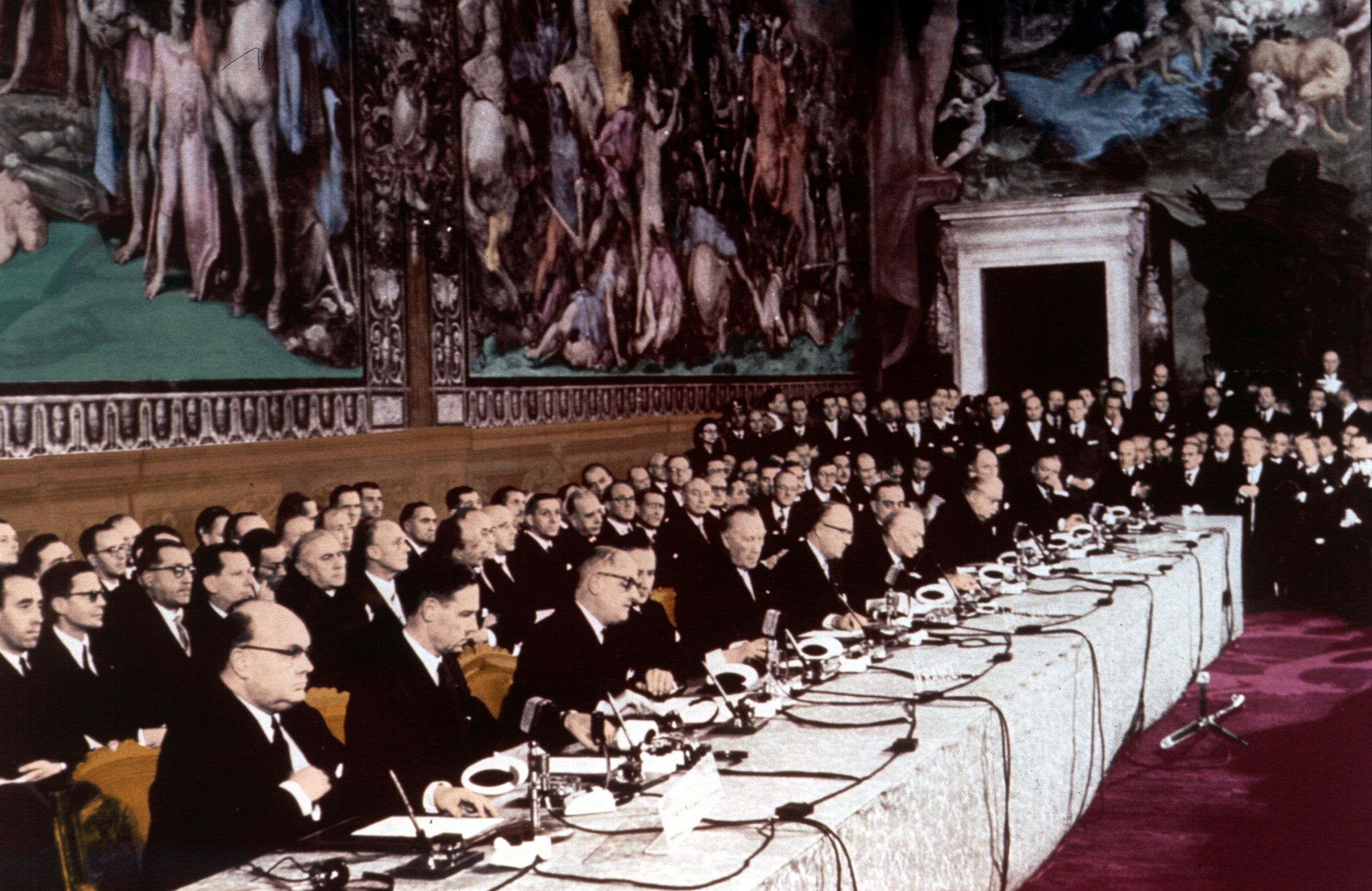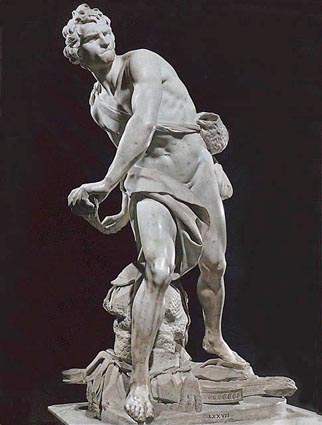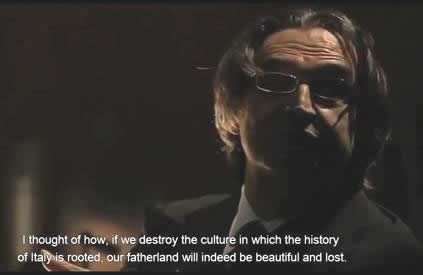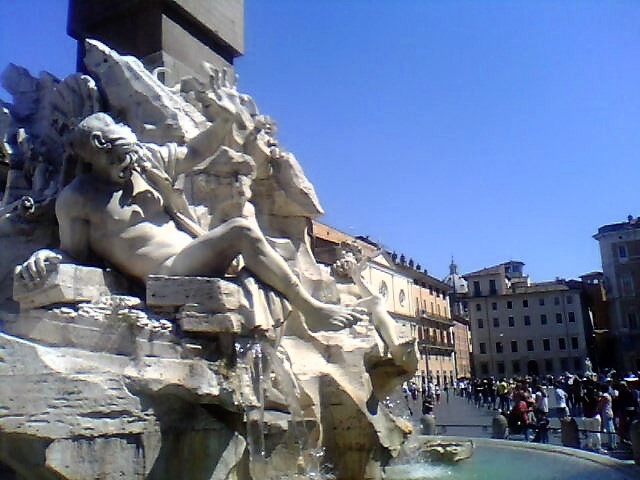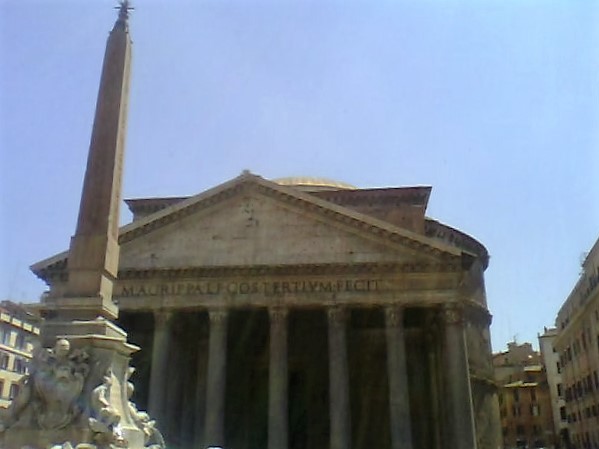
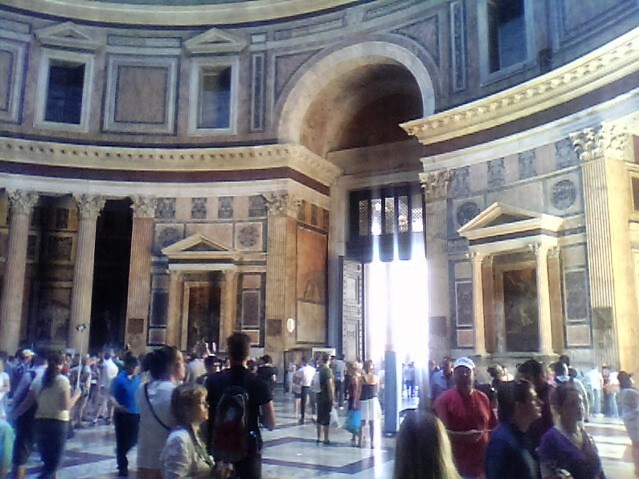
|
The Pantheon, meaning "temple of every god", is a building in Rome on the site of an earlier building commissioned by Marcus Agrippa during the reign of Augustus (27 BC – 14 AD). The present building was completed by the emperor Hadrian and probably dedicated about 126 AD. He retained Agrippa's original inscription, which has confused its date of construction.
The building is circular with a portico of large granite Corinthian columns (eight in the first rank and two groups of four behind) under a pediment. A rectangular vestibule links the porch to the rotunda, which is under a coffered concrete dome, with a central opening (oculus) to the sky. Almost two thousand years after it was built, the Pantheon's dome is still the world's largest unreinforced concrete dome. The height to the oculus and the diameter of the interior circle are the same, 43.3 metres (142 ft).
It is one of the best-preserved of all Ancient Roman buildings, in large part because it has been in continuous use throughout its history, and since the 7th century, the Pantheon has been used as a church dedicated to "St. Mary and the Martyrs" but informally known as "Santa Maria Rotonda". The square in front of the Pantheon is called Piazza della Rotonda. The Pantheon is a state property. In the aftermath of the Battle of Actium (31 BC), Marcus Agrippa started an impressive building program: the Pantheon was a part of the complex created by him on his own property in the Campus Martius in 29–19 BC, which included three buildings aligned from south to north: the Baths of Agrippa, the Basilica of Neptune, and the Pantheon. It seems likely that the Pantheon and the Basilica of Neptune were Agrippa's sacra privata, not aedes publicae (public temples). This less solemn designation would help explain how the building could have so easily lost its original name and purpose in such a relatively short period of time.
It had long been thought that the current building was built by Agrippa, with later alterations undertaken, and this was in part because of the inscription on the front of the temple which reads: M·AGRIPPA·L·F·COS·TERTIVM·FECIT or in full, "M[arcus] Agrippa L[ucii] f[ilius] co[n]s[ul] tertium fecit," meaning "Marcus Agrippa, son of Lucius, made [this building] when consul for the third time." However, archaeological excavations have shown that the Pantheon of Agrippa had been completely destroyed except for the façade. Since the Renaissance the Pantheon has been used as a tomb.
|



